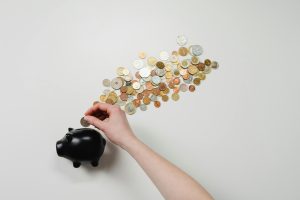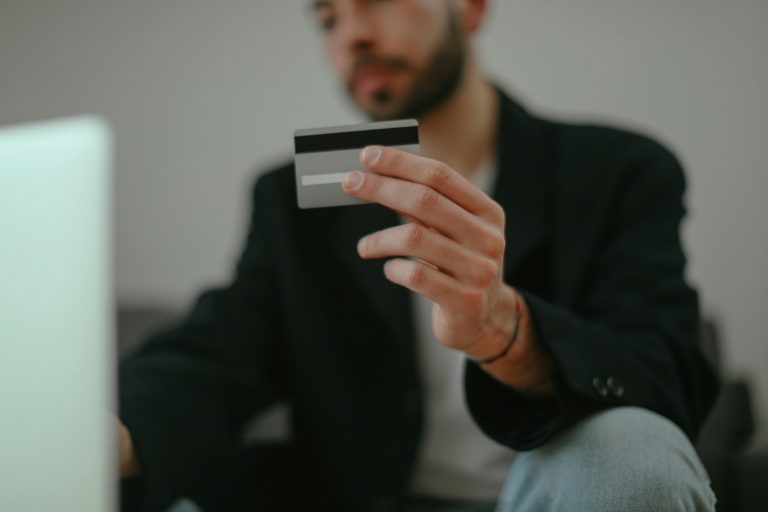It’s easy to forget about the cryptocurrency trend, given the stuff happening around the world. While you’re not looking, more companies and countries are adopting this virtual currency. Soon, it will have a hand in shaping our world at large.
That’s why you can find more talks about cryptocurrency regulations worldwide. You don’t even have to look far as the United States is figuring out the new laws it would need. How will the US regulate crypto, and what will it do to investors?
I’ll start by talking about why cryptocurrency regulation remains a challenge worldwide. Then, we will look at the US progress in creating a regulatory framework. We will also look at how other nations are doing with crypto regulation. Later, you’ll see how to work with current US crypto laws.
Why Is Crypto Not Regulated?

The biggest reason cryptocurrency regulation is tough to figure out lies in the digital currency itself. To understand this, we have to look back at the first one: Bitcoin (BTC).
It came out in 2009 intending to establish a decentralized financial system. Its creator Satoshi Nakamoto knew that banks held too much power over the world’s finances.
This lets them charge people with exorbitant fees for every money transfer. Their oversight also helps them gather too much sensitive data from regular people.
Bitcoin works with the help of regular people and their computers. Everyone can volunteer in confirming bitcoin transactions, also known as bitcoin mining. In return, they earn extra bitcoin.
It’s open-source software, so anyone with a computer and internet connection can join bitcoin mining. Moreover, a public ledger records all the transactions.
All senders and recipients of bitcoin have a bitcoin address. How much bitcoin has transferred between two addresses in a given transaction is the public ledger.
It’s not completely anonymous because experts can still trace the addresses via forensic analysis. Still, this provides bitcoin users a high level of security.
As you’ve noticed, no central hub or organization is pulling the strings on everything. Instead, computers owned by regular people link together to operate it.
This type of connecting computers is possible due to blockchain technology. That’s why most people refer to crypto networks as blockchains.
This system makes it hard for crypto regulation. There’s no central authority monitoring everything, so how can anyone place rules on it.
Virtual Currency Is Rapidly Evolving

Another problem with placing rules on digital assets is that the technology is growing faster than most legislators can comprehend. The crypto space is just brimming with innovation!
For example, smart contracts and tokenization make decentralized finance possible. The first one refers to agreements that execute when certain conditions are met.
It doesn’t need a third party to operate, so it will automatically work. Meanwhile, tokenization involves representing conventional assets into crypto assets.
This lets investors trade stocks, precious metals, and even fiat currencies much faster than before. Now, they could trade fractional shares so that more people could invest.
What’s more, there are non-fungible tokens or NFTs. These record ownership of an asset on a blockchain network. As a result, the owner gets a unique piece despite multiple free copies.
That’s because he has the only one linked to a crypto network. This proves useful in many industries, such as ticketing for live events. This prevents people from scalping a majority of tickets for exorbitant prices.
The new cryptocurrencies don’t work like bitcoin anymore. Bitcoin’s “mining system” is called proof-of-work, but the newer ones like Solana (SOL) use proof-of-stake.
Cryptocurrency mining requires a powerful computer since you’ll have to make sure yours is the one that confirms a specific transaction first. Otherwise, you don’t earn more cryptos.
On the other hand, proof-of-stake just requires a deposit, similar to a bank savings account. Then, you can sit back as your initial deposit grows larger than before.
Do you want more proof of how fast the cryptocurrency space is changing? Try reading more crypto articles from Inquirer USA. They keep up-to-date with the latest trends, and you’ll see that the site continues to update its articles.
Read More: How Do Cryptocurrencies Gain Value?
How Can the Government Regulate Cryptocurrency?
OFFICIAL: Ukraine passes law legalizing #Bitcoin 🇺🇦 pic.twitter.com/gjjZ9tUUZ2
— Bitcoin Magazine (@BitcoinMagazine) February 17, 2022
You may have found all that information confusing. Believe it or not, those were just summaries of the most well-known use-cases of cryptocurrencies.
Statista reported that the world would have 10,397 cryptocurrencies by February 2022. So far, this article just mentioned Solana and Bitcoin. Imagine keeping track of the remaining ten thousand!
You can see that the number is growing if you check cryptocurrency exchanges like Binance. It shows a new initial coin offering almost every month, continually showing new additions to the crypto market.
The US government is also made up of people far into their senior years. According to CNN, more than half of the US Senate is older than 65.
We respect their experience, but it must be difficult to match decades-old laws with this new technology. The Union Bank of Switzerland shares a similar opinion.
In its report on February 11, 2022, UBS said that we couldn’t expect the US government to develop a comprehensive framework for crypto regulation.
That’s because the legislators will have to understand how cryptocurrencies work. It must also see how current federal securities laws apply to these digital assets.
This means checking how rules from The Securities and Exchange Commission and the Commodity Futures Trading Commission may relate to the cryptocurrency market.
What’s more, the government will probably need new rules for existing financial institutions that deal with digital currencies. We have some right now, such as the one Warren Buffett invested in called NuBank.
This seems doable until you realize just how fast cryptocurrency technology is evolving. If you look at crypto blogs from Inquirer USA, you’ll see how far the world is taking cryptos.
For example, it tells how El Salvador became the first country to adopt bitcoin as legal tender. More countries like Venezuela prefer this to exchange over their fiat money.
You will have to read up on all the latest before starting to form regulations. Unfortunately, that list of updates seems to grow longer every day!
Which Countries Have Regulated Cryptocurrency?
Crypto just became legal in India!
The Indian government has cleared confusions in the form of a crypto asset tax law.https://t.co/MlNdkqY2Px
— Binance (@binance) February 1, 2022
While the US struggles with crypto regulation, other countries just took the simplest approach of banning it. That’s what China did by cracking down on cryptos.
Many countries realize that avoiding cryptocurrencies means missing out on their benefits. Nations like Australia go so far as to recognize this digital asset to secure their future.
You can find so many other countries that have accepted cryptocurrency. Yet, they have different ways of implementing crypto regulation.
Here are the ways some countries adopted digital assets:
- Canada does not recognize cryptocurrency as legal tender. It requires crypto exchanges to register with the Financial Transactions and Reports Analysis Centre of Canada or FinTRAC.
- Singapore also doesn’t recognize crypto as legal tender. Like Canada, crypto exchanges must register with the Monetary Authority of Singapore.
- Australia treats cryptocurrency tokens as legal property. Still, the crypto exchanges must sign up with the Australian Transaction Reports and Analysis Centre or AUSTRAC.
- Japan has the most progressive regulations on crypto as it recognizes bitcoin and other crypto-assets as legal property. It counts as “miscellaneous income,” so cryptocurrency investors must pay the corresponding tax.
How to Follow Current US Crypto Laws

We can say the same for the investors in the United States. The Internal Revenue Service taxes the asset in two ways: a source of income and a capital asset.
It counts as a source of income if you perform the following actions:
- Sell cryptos for cash.
- Buy stuff using cryptocurrency.
- Trade them for other cryptocurrencies.
- Engage in crypto mining.
- Receive cryptos as payment or from an airdrop. The latter refers to the cryptos that investors receive after a crypto promo distributes it.
- Earn crypto rewards from staking and other interest-earning measures.
You will also have to pay crypto taxes as capital gains. If you’ve held your coins for less than a year, it’s short-term capital gains. Hold it for longer, and you pay long-term capital gains.
You don’t have to pay taxes for other actions. Check out this article about cryptocurrency taxes for more information.
Should Cryptocurrencies Be Regulated?
Cryptocurrency, or “crypto,” is digital currency that can be used to buy goods and services. Experts across Penn shed light on what the future cryptocurrency landscape looks like, from business and banking to laws and regulation to environmental impact. https://t.co/Jg8kJxyq6p
— Penn (@Penn) November 27, 2021
Some investors are up in arms about putting more rules on cryptos. They see it as a threat to the innovation and better future that it is building. Yet, crypto regulation is important if it wants further progress.
Supporters must be honest about the problems that cryptos still have. For example, many people find it too volatile as a proper medium of exchange.
Some people use it to scam people into investing in useless tokens. Others use it for more nefarious means, such as money laundering.
In light of the ongoing Ukraine-Russia conflict, people wondered if crypto is helping President Putin bypass economic sanctions. That’s no surprise since there have been a lot of reports about people using it for illegal transactions.
The crypto market needs to have regulations in place to use them easily. Regulations could stabilize the prices and make it easier to stop criminals from using them.
Related Articles
Final Thoughts
The crypto industry needs to grow up and become serious. It cannot continue to be a platform for funny NFTs and meme coins. Otherwise, it cannot achieve its ultimate goal of decentralized finance.
That can’t happen unless more people feel confident about adopting the asset. More regulation can ensure that more countries and ordinary people can use it safely and conveniently.
It’s been fun playing NFT games and selling silly NFT art pieces. If it truly changes the world, it must be serious in working with the suits at the central bank and the government.












